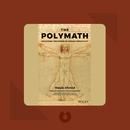The Polymath
The Polymath: Unlocking the Power of Human Versatility
Your highlights:Pursuing polymathy enables you to contribute more meaningfully to your community and society at large.
Indeed, if you look back in history, you’ll find that those who’ve made the biggest contributions to society were often polymaths. This is demonstrated by one wide-ranging study of the world’s most influential scientists, which concluded that 15 of the 20 most important scientists were polymaths. Among the most remarkable of such figures was Shen Kuo, a scientist of the Chinese Song Dynasty. He made major contributions in the fields of mathematics, optics, geology, astronomy and anatomy. One of Kuo’s important discoveries was that a compass doesn’t point exactly north, but to the magnetic north pole. Kuo wasn’t just a scientific polymath. He was also a statesman, an accomplished poet, a painter and a musician.
13 October, 2019 04:24 Share
Specialization makes you less able to survive changing, and volatile, work circumstances.
best-selling author Yuval Noah Harari argues in his book 21 Lessons for the 21st Century that adaptability – the ability to cultivate a range of skills – will be essential for workers in the future, who will find it necessary to switch frequently between careers and jobs.
13 October, 2019 04:32 Share
How radically will artificial intelligence change the working world? It’s estimated that up to 47 percent of American jobs will become automated in the coming decades. Most of those jobs at risk for automation involve specialized tasks, such as machine operation, data collecting and processing. In the face of automation, it’s the jobs that involve broader, more interconnected thinking that will continue to be the preserve of humans. Therefore, people whose occupations are difficult to define, and whose work encompasses polymathic skills, are more likely to survive the age of AI.
13 October, 2019 04:32 Share
The traits that you need to cultivate in order to develop a polymathic mind are individuality, curiosity and intelligence.
That’s because curiosity is rooted in your biology. As evolutionary biologists confirm, humans are predisposed toward the search for knowledge. In fact, the desire for knowledge has the same roots as the desire for sex – both urges are driven by dopamine, the brain chemical that motivates you to seek gratification. And who says curiosity killed the cat? Actually, some of the world’s greatest polymaths are distinguished by their boundless capacity for curiosity. Martin Kemp, a leading biographer of Renaissance mastermind Leonardo da Vinci, singles out Leonardo’s curiosity as a key aspect of his polymathic genius. Another polymathic genius, Albert Einstein, attributed his own great achievements to curiosity. As he put it, "‘I have no special talents. I am only passionately curious.’"
13 October, 2019 04:33 Share
How can you improve your intelligence? Simple – by diversifying your interests and activities. That is, indulging in polymathy will likely have the loop effect of improving your IQ. This is suggested by a recent study carried out at the University of Toronto. This study showed that IQ scores of children improved notably when they diversified their activities. In this case, the children added music to their routines by taking drum lessons. As the children’s improved IQs indicate, diverse skills can translate into greater intelligence.
13 October, 2019 04:34 Share
In order to realize the full polymathic potential of our minds, we also need to develop the qualities of versatility, creativity and unity.
Psychologist Robert Root-Bernstein’s study of polymaths supports these observations about creativity. Root-Bernstein concludes that polymaths make original and groundbreaking contributions to their fields "because of, not in spite of, their broad interests." Indeed, if we want to think like polymaths, we need to recognize that divisions that separate different fields of knowledge are illusory.
13 October, 2019 04:34 Share
Da Vinci’s unified approach was affirmed centuries later by Edwin Hubble, inventor of the device named after him, the Hubble telescope. Hubble stated that the division of knowledge into different fields is misleading, because reality itself is one single whole. In other words, to see the full picture, we need to think holistically.
13 October, 2019 04:35 Share
You should pursue multiple careers simultaneously or successively in order to nurture a polymathic professional life.
Embracing varied interests in adulthood requires pursuing polymathy in your professional life. One way to do so is to actively seek out career changes. In this regard, why not follow in the footsteps of polymaths like Albert Schweitzer? A renowned theologian and philosopher, Schweitzer was also a celebrated organist. In addition, he took up the study of medicine in his thirties to become a physician in later life.
13 October, 2019 04:37 Share
About the book:
The Polymath (2019) explains how the hyper-specialization encouraged by society stifles people’s development, creativity and self-fulfilment. Instead, the book argues that everyone should nurture their polymathic capacities, and that educational and professional structures need to be reconfigured to reflect our innate human potential to think, learn and work across multiple fields and in varied ways.
About the author:
Waqas Ahmed is Artistic Director at The Khalili Collections, and is pursuing graduate studies in neuroscience at King’s College London. In addition, he has worked as a journalist and editor, and has traveled extensively.
© Waqas Ahmed: The Polymath copyright 2019, John Wiley & Sons Inc. Used by permission of John Wiley & Sons Inc. and shall not be made available to any unauthorized third parties.
Blinkist takes outstanding nonfiction books and distills their key insights into made-for-mobile book summaries that you can read in just 15 minutes. Learn something new every day - on your smartphone, tablet or PC.
blinkist.com